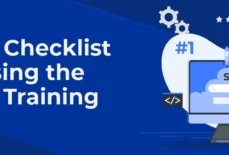In education, success has often been measured solely by exam performance, leaving little room for assessing other crucial aspects of learning and development. However, there is a growing recognition that traditional exam-focused evaluations may not provide a comprehensive picture of a student’s abilities and potential. This article explores the need to rethink education success measures and highlights alternative approaches that go beyond exams. We can foster a more inclusive and meaningful education system by considering a holistic assessment framework encompassing diverse skills, knowledge, and experiences.
The Limitations of Exam-Based Assessment
While exams serve as a standard evaluation method, they have inherent limitations. Relying solely on exams can create a high-pressure environment emphasizing rote memorization over critical thinking and problem-solving skills. Additionally, exams need to adequately measure creativity, collaboration, communication, and other essential skills vital for success in the modern world. It is crucial to move beyond exam-centric evaluation and consider alternative measures that capture a broader range of abilities.
Embracing Project-Based Assessments
Project-based assessments offer a valuable alternative to traditional exams. They allow students to apply their knowledge and skills in real-world contexts, fostering creativity, critical thinking, and collaboration. Projects enable students to engage deeply with a topic, conduct research, solve complex problems, and present their findings innovatively. By emphasizing project-based assessments, education systems can encourage active learning and better align with the skills required in today’s rapidly changing society.
Assessing Social and Emotional Skills
Success in education goes beyond academic achievement; it also encompasses social and emotional development. Empathy, resilience, teamwork, and self-awareness are vital for personal growth and success in life. Implementing assessments that evaluate these skills can provide a more comprehensive understanding of a student’s well-being and readiness for future challenges. By integrating social and emotional skill assessments, education systems can prioritize the holistic development of students. Assessing social and emotional skills can also help identify students’ strengths and areas for improvement.
Teachers can use the assessment results to tailor their instruction and support to meet their student’s diverse needs and goals. They can also create learning activities that foster positive relationships, emotional regulation, and conflict resolution. By assessing social and emotional skills, education systems can promote a culture of well-being and inclusion.
Portfolio Assessments
Portfolios offer a comprehensive way to assess students’ progress and growth over time. Instead of relying solely on single exams, portfolios compile a collection of student work that showcases their achievements, strengths, and areas for improvement. This multifaceted approach allows educators to gain insights into students’ abilities, creativity, problem-solving skills, and growth trajectory. Portfolios provide a more authentic representation of a student’s skills and offer self-reflection and goal-setting opportunities.
Authentic Assessments
Authentic assessments are designed to mirror real-life situations and challenges. They require students to apply their knowledge and skills in original contexts, demonstrating their ability to transfer learning to practical scenarios. Authentic assessments can include simulations, role-playing exercises, case studies, and real-world projects. By incorporating accurate estimates, education systems can foster critical thinking, problem-solving, and decision-making skills applicable beyond the classroom.
Authentic assessments also involve engaging students in meaningful and relevant tasks that reflect their interests and goals. They allow students more autonomy and choice in demonstrating their learning and opportunities for self-assessment and peer feedback. Authentic assessments can enhance students’ motivation, confidence, and ownership of their learning. By incorporating genuine reviews, education systems can prepare students for the demands and expectations of the 21st century.
Assessing Creativity and Innovation
Creativity and innovation are crucial in today’s rapidly evolving world. Education systems should place a greater emphasis on assessing and nurturing these qualities. By incorporating assessments that encourage originality, divergent thinking, and the ability to generate innovative solutions, we can better prepare students for the challenges and opportunities of the future.
Assessments that evaluate creativity can include artistic expressions, design projects, entrepreneurship challenges, and problem-solving scenarios that require novel approaches. Assessing creativity and innovation also involves providing constructive feedback and guidance to students. Teachers should foster a supportive and collaborative learning environment that allows students to experiment, take risks, and learn from failures.
They should also help students develop self-awareness and reflection skills that enable them to monitor and improve their creative processes. We can cultivate a culture of lifelong learning and growth by assessing creativity and innovation in a holistic and formative way.
Conclusion
Rethinking education success measures goes beyond relying solely on exams as the ultimate evaluation tool. We can create a more inclusive and meaningful education system by embracing alternative assessment approaches such as project-based assessments, evaluating social and emotional skills, utilizing portfolios, employing authentic reviews, and measuring creativity and innovation.
This shift acknowledges the multifaceted nature of learning and provides students with opportunities to develop various skills, knowledge, and competencies. Additionally, services are available for individuals seeking assistance with online courses to support their educational journey. Platforms that offer to “do my online class for me” or “do my online course for me” can provide additional help and support for those who require it. Ultimately, we can better prepare students for complex challenges and diverse opportunities by adopting a holistic assessment framework beyond exams.







































































